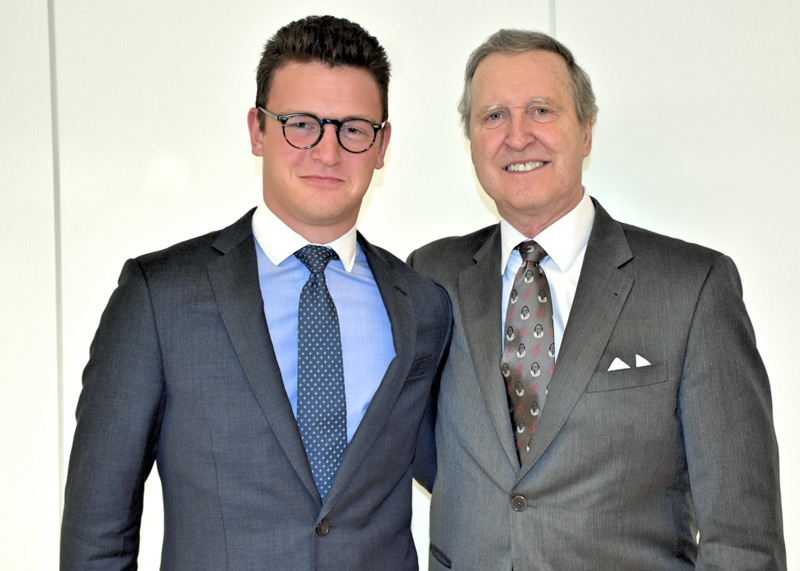Abe Ziner ’17
Internship: The Cohen Group
Major: Strategic geography (independent major)
A rare opportunity: “I interned at The Cohen Group in Washington, D.C., which is a source of global strategic insight on a wide variety of fields, from defense and security to healthcare and infrastructure. I was intrigued by both the dynamic nature of the work undertaken by The Cohen Group, as well as the opportunity to work alongside and learn from the very people whose works I have studied in my classes at Wheaton.”
Forging a path: “I am pursuing an independent major in strategic geography. The major is my attempt to understand both the parts of society and theory that underpin and interconnect today’s Middle East. Early on at Wheaton, I realized that specializing in a particular subject, even in the context of a liberal arts college, wasn’t going to give me the breadth of understanding I wanted. Writing my own major provided an excellent way to gain the diversity of academic experience I craved while at the same time allowing me to focus on the fascinating connections between disciplines. While I initially drew up the plan for the major my sophomore year, it was during my time studying in Egypt that I realized the necessity of studying the variety of subjects my major allowed for.”

Dynamic duties: “Assignments ran the gamut from researching an emerging foreign market and assessing a business development strategy to drafting correspondence to heads of state and delivering briefings to a room full of former generals and ambassadors. Some days I worked as part of a larger research team doing an in-depth analysis of a business or security environment, whereas others I have an hour or two to prepare a briefing for one of the ambassadors before they speak to a client, media or other official.”
Changing pace: “There is an entirely distinct approach to research in this environment. Changing from an academic mindset to this much faster pace was disconcerting at first, but it has taught me how to research in an entirely different, and I’d say more effective, way. I’ve learned how to put together material that I can deliver and be entirely confident in, as well as learned how to say that I can’t take on certain tasks, that I’m swamped, or that I couldn’t find an answer. I’ve learned how to work right up to the edge of my capabilities, and how to draw on the knowledge of others around me to fill out what I can’t answer on my own.”
Part of the team: “I have been amazed at just how integrated I’ve felt as an intern. During the first week, I was on a research team working on a very tight deadline. After we had worked for many hours, and mounds of papers seemed to have grown out of the tables, the team lead looked to me and asked for my thoughts on our methodology and conclusions. I was astonished by the agency they gave me. I was able to see my input alter and affect the work of the entire team as it moved and influenced our final conclusion. This happened repeatedly, and was one of the most significant and rewarding parts of the experience.”
Answering to oneself: “I learned that it’s very rare that you will have the answer to a question from something that you have read or studied. Rather, you are faced with new questions, and have to stitch together an answer utilizing every last fact, experience, conversation and slice of knowledge you have gained. In that way, there was not a Wheaton class or experience that I would credit. However, there are some special professors who will get you thinking in a certain way, a dynamic way, who will help you hone your mental process. In that regard, I thank Associate Professor of Political Science Alireza Shomali for pushing me to always be more creative and inventive in how I approach and understand the questions I come across.”
Looking forward: “After graduation, I hope to go back to the Middle East in a research capacity. This coming year, I hope to draw on the tools my major has given me, the lessons I learned while I was abroad, and the experience I’ve gained through this time in Washington, D.C., as I pursue a senior honors thesis exploring the ways political structures shift as communities transform from rural to urban environments.”
